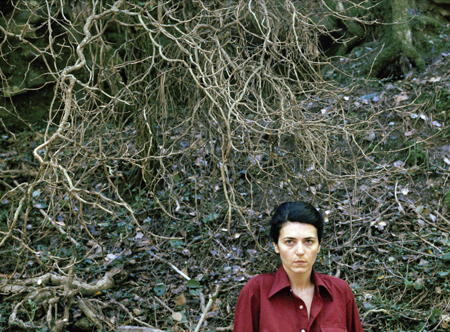Thursday, October 11, 6 p.m. | Introduced by Daniel Eisenberg, Professor of Film, Video, New Media and Animation at the School of the Art Institute of Chicago

For more than four decades Jean-Marie Straub and the late Danièle Huillet influenced generations of filmmakers, artists, and thinkers with their personal and politically engaged films based on plays, novels, and political writings. When Huillet died in 2006, Straub completed their final project, The Itinerary of Jean Bricard (L’Itinéraire de Jean Bricard, 2008), a haunting short that uses Jean-Yves Petiteau’s non-fiction account of a French resistance fighter to evoke the destruction of historical and geographical memory. Also screening are Straub’s subsequent adaptations of Cesare Pavese’s Dialogues with Leucò: Artemis’ Knee (Le genou d’Artemide, 2008), a meditation on love and distance, and The Witches: Women Among Themselves (Le Streghe: Femmes entre ells, 2009), a consideration of nature and mortality. In French and Italian with English subtitles.
Presented in collaboration with the Italian Cultural Institute of Chicago
JEAN-MARIE STRAUB (b. 1933, Metz, France) and DANIÈLE HUILLET(1936 –2006), Cholet, France) created more than two-dozen films together from 1963 up until Huillet’s death in 2006. Working mainly in Germany, the two became leading figures in New German Cinema. Their films have shown at acclaimed festivals worldwide, including Cinéma du réel International Documentary Film Festival at the Centre Georges Pompidou, the National Gallery in Washington D.C., Cannes Film Festival, Toronto International Film Festival, and the Kunsthal Antwerpen in Belgium. Their films have earned nominations for the Golden Lion Award at the Venice Film Festival and awards at the British Film Institute and German Film Critics Association. Straub continues to make work on his own, including the 2011 shorts Schakale und Araber, Un hèritier, and L’Inconsolable.